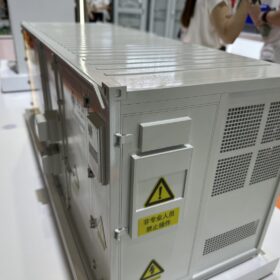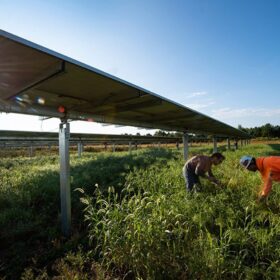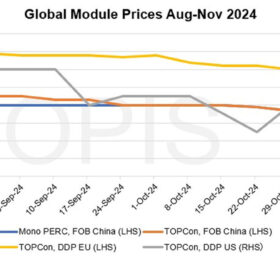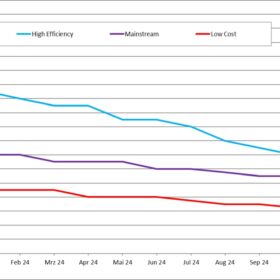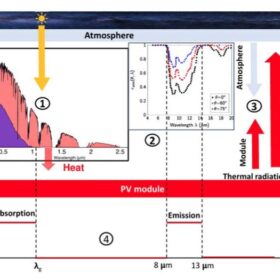Utility-scale BESS: Best practices to mitigate hazards
A report from Leeward Renewable Energy has investigated battery energy storage system (BESS) fires and other thermal runaway events to try and put them into context.
Enphase introduces portable off-grid battery
The solar microinverter provider introduced a 1500 Wh portable battery bank.
New research finds utility-scale solar parks foster biodiversity
A series of longitudinal studies of three solar-pollinator sites in Minnesota have demonstrated evidence of native prairie growing under solar panels, providing both soil benefits and habitat for wildlife and pollinators.
The Hydrogen Stream: NTPC’s green hydrogen buses start running in Leh
The green hydrogen mobility project at Leh comprises in-situ 1.7 MW solar plant, green hydrogen filling station of 80 kg/day capacity, and five hydrogen intra-city buses.
U.S. Congressmen introduce bill to block implementation of 45X tax credit
Congressmen John Moolenaar and Jared Golden introduced a new bill that aims to halt advanced manufacturing tax credits.
Northvolt CEO steps down following bankruptcy filing
Company co-founder Peter Carlsson steps down from CEO position at Northvolt in the wake of Chapter 11 announcement in the United States. The Swedish battery maker has embarked on a debt restructuring process and is seeking new sources of funding.
Global solar module prices stable-to-soft as markets absorb news of U.S. election, policy changes
In a new weekly update for pv magazine, OPIS, a Dow Jones company, provides a quick look at the main price trends in the global PV industry.
Solar panel price drop in November may mark end of downward trend
Martin Schachinger, founder of pvXchange.com, says the 8% price drop in November for solar modules could mark the end of sustained declines, as market signals are pointing to a possible recovery.
The Hydrogen Stream: ACME Cleantech, BASF sign agreement to supply green ammonia to Europe
ACME Cleantech and BASF have also signed a Memorandum of Understanding (MoU) to explore further collaboration in the green ammonia business.
Unlocking the potential of radiative cooling for photovoltaic modules
Radiative cooling is an emerging technology that holds the potential to enhance the performance and longevity of PV modules. Researchers from the Institute of Nanotechnology of Lyon explain how this technology may reach commercial maturity.
